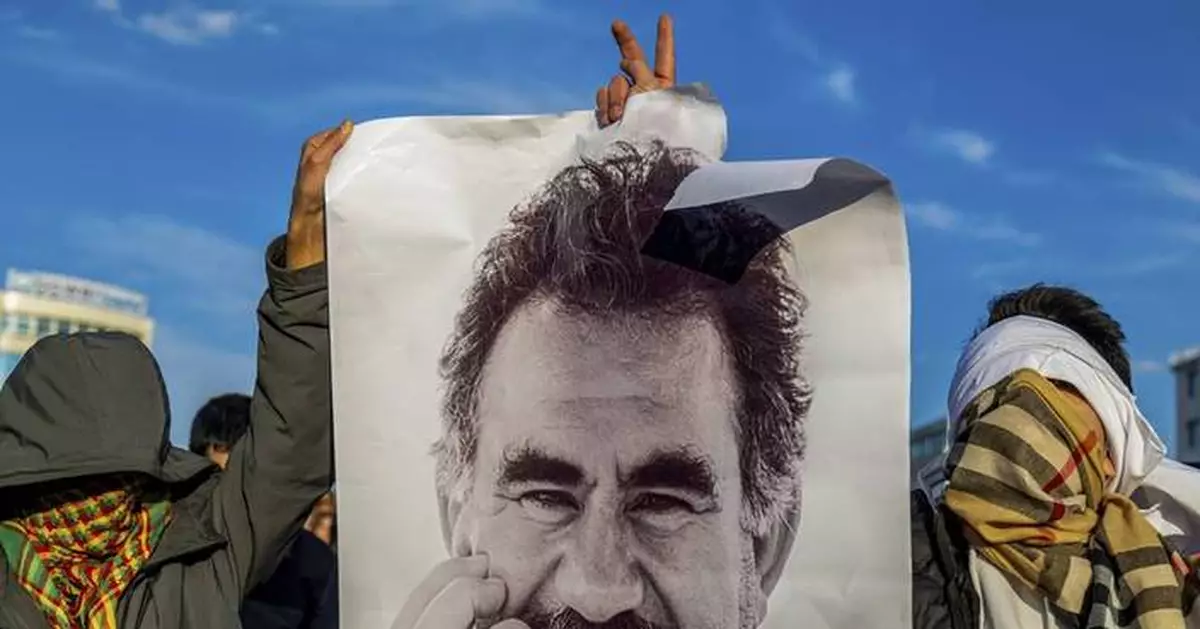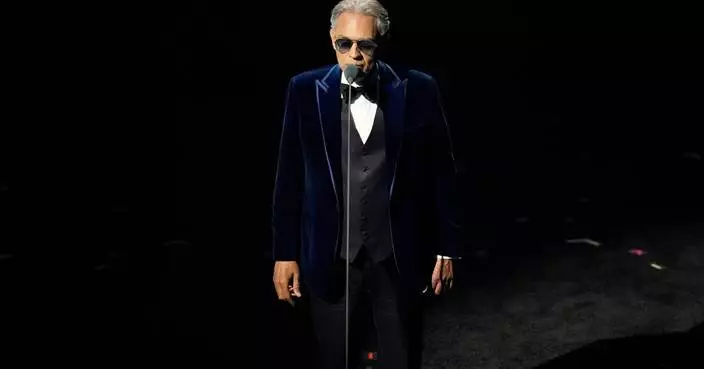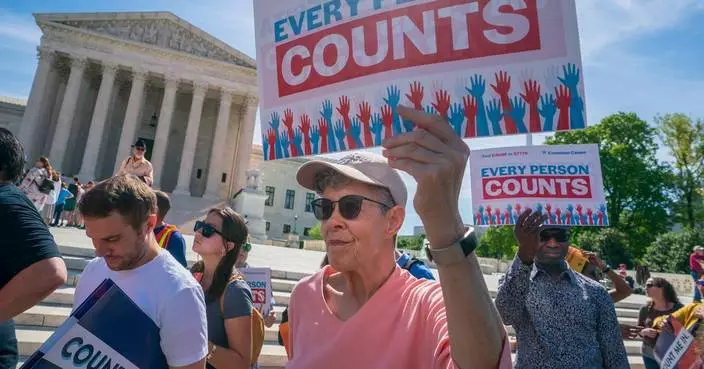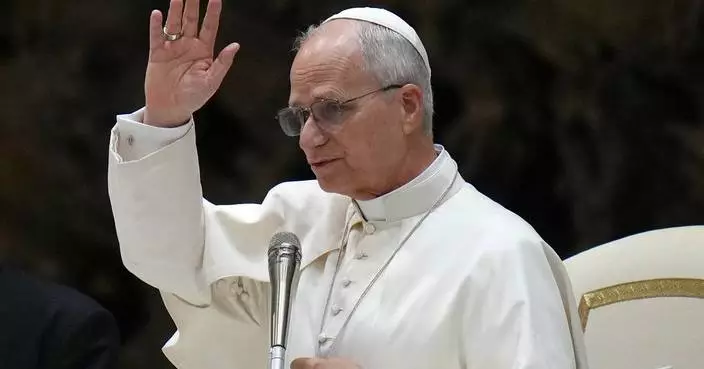ANKARA, Turkey (AP) — The Kurdish militant group PKK announced Monday that it is disbanding and renouncing armed conflict as part of a new peace initiative with Turkey, ending four decades of hostilities.
The decision by the PKK, or Kurdistan Workers’ Party, promises to end one of the longest insurgencies in the Middle East and could have significant impact in Turkey, Syria and Iraq. It was announced by the Firat News Agency, a media outlet close to the group, days after the PKK convened a party congress in northern Iraq.
In February, PKK leader Abdullah Ocalan, who has been imprisoned on an island near Istanbul since 1999, urged his group to convene a congress and formally decide to disband and disarm.
The call by Ocalan, 76, who continues to wields significant influence in the Kurdish movement despite his 25-year imprisonment, marked a pivotal step toward ending the decades-long conflict that has claimed tens of thousands of lives since the 1980s.
Building on the momentum, the PKK announced a unilateral ceasefire on March 1 but attached conditions, including the creation of a legal framework for peace negotiations.
The conflict between Turkey and the PKK has spilled over into northern Iraq and northern Syria, with Turkey carrying out numerous incursions into the neighboring regions. The PKK is listed as a terror group by Turkey and its Western allies.
Turkish President Recep Tayyip Erdogan welcomed the PKK’s latest announcement, saying it would lead to stronger security and regional peace.
“We have crossed another critical threshold in the process toward a terror-free Turkey,” he said.
U.N. Secretary-General Antonio Guterres welcomed the PKK announcement, U.N. spokesman Stephane Dujarric said. “This decision, if implemented, represents another important step towards the peaceful resolution of a long-standing conflict.”
In a statement carried by Firat, the PKK announced its decision to end its “organizational structure" and suggested that its armed struggle has successfully challenged policies that sought to suppress Kurdish rights.
The congress assessed that the PKK’s struggle had “brought the Kurdish issue to the point of resolution through democratic politics, thus completing its historical mission,” according to the statement.
"As a result, activities carried out under the name ‘PKK’ were formally terminated,” the statement said.
Turkish Foreign Minister Hakan Fidan described the decision as “historic,” but said the government would closely monitor the steps the group takes.
Syrian Foreign Minister Asaad al-Shibani said the peace agreement "will also contribute to the stability of the region.”
Erdogan said the declaration should apply to all PKK-affiliated groups: “We consider this announcement to encompass all of the organization’s branches, including those in northern Iraq, Syria and Europe."
Kurdish fighters in Syria have ties to the PKK and have been involved in intense fighting with Turkish-backed forces there. The leader of the U.S.-backed Kurdish-led Syrian Democratic Forces previously said Ocalan’s call for a dissolution does not apply to his group in Syria. The group then reached an agreement with the central government in Damascus for a nationwide ceasefire and its merger into the Syrian army.
Details of the PKK's peace initiative have not been made public. The future of its fighters remains uncertain, including whether they may be relocated to third countries.
Some analysts have suggested the Kurdish movement could potentially receive concessions including improvement in Ocalan's prison conditions, release or amnesty for jailed Kurdish politicians — including Selahattin Demirtas, the former leader of the country's pro-Kurdish party — and guarantees against the removal from office of Kurdish mayors.
Previous peace efforts between Turkey and the group — most recently in 2015 — ended in failure.
Dozens of people gathered Monday outside a mosque in the mainly Kurdish city of Diyarbakir, celebrating the announcement with a traditional dance.
“The people of this region are tired of this war,” said resident Tekin Ergin. “The PKK’s decision to disband is the right decision and a timely decision.”
In recent years, the PKK has been limited to isolated attacks inside Turkey as the Turkish military, backed by armed drones, has pushed its insurgents increasingly across the mountainous border into Iraq.
The latest peace initiative was launched in October by Erdogan’s coalition partner, Devlet Bahceli, a far-right politician who suggested that Ocalan could be granted parole if his group renounces violence and disbands.
Some believe the main aim of the reconciliation effort is for Erdogan’s government to garner Kurdish support for a new constitution that would allow him to remain in power beyond 2028, when his term ends.
Bahceli has called for a new constitution, saying it is essential for Turkey’s future that Erdogan remain in power. Erdogan and Bahceli are reportedly seeking parliamentary support from the pro-Kurdish People’s Equality and Democracy Party, or DEM.
The PKK’s declaration could mark a major gain for Erdogan, whose government is grappling with political tensions following the arrest of Istanbul’s Mayor Ekrem Imamoglu on corruption charges. Many see the imprisonment of the mayor, who is the opposition’s strongest challenger to Erdogan’s more than two-decade rule, as politically motivated. The government insists Turkey’s judiciary operates independently.
Sinan Ulgen, director of the Istanbul-based Edam think tank, cited both domestic and international drivers for the new peace initiative.
“The domestic driver can be explained by Erdogan’s aspiration to secure additional support in parliament in order to pave the path to his potential candidacy for the next round of presidential elections,” Ulgen said.
Internationally, Ulgen said, factors such as the change of administration in Syria and Iran’s weakening after being targeted by Israel, had left the PKK “more vulnerable than in the past.”
"This does not mean that the road is clear of all hurdles,” Ulgen added, warning of possible splits within the PKK.
“We’ve seen this sort of dynamics around the world,” Ulgen said. “Whether it is IRA or other entities that have decided to lay down arms, there is the prospect of a split, with one wing being in compliance with the objective, but the more radical wing continuing with the fight.”
Bahceli said he hoped “the bloody chapter will be closed forever, never to be reopened.”
The politician called for careful consideration of the steps to follow, including the timing and method of arms collection, monitoring the possible transitions of PKK members into groups in Syria, distinguishing members involved in criminal activities from those who were not, and deciding the appropriate course action concerning the group’s leadership.
Associated Press writers Cinar Kiper in Bodrum, Turkey, Mucahit Ceylan in Diyarbakir, Turkey, and Edith M. Lederer at the United Nations contributed.
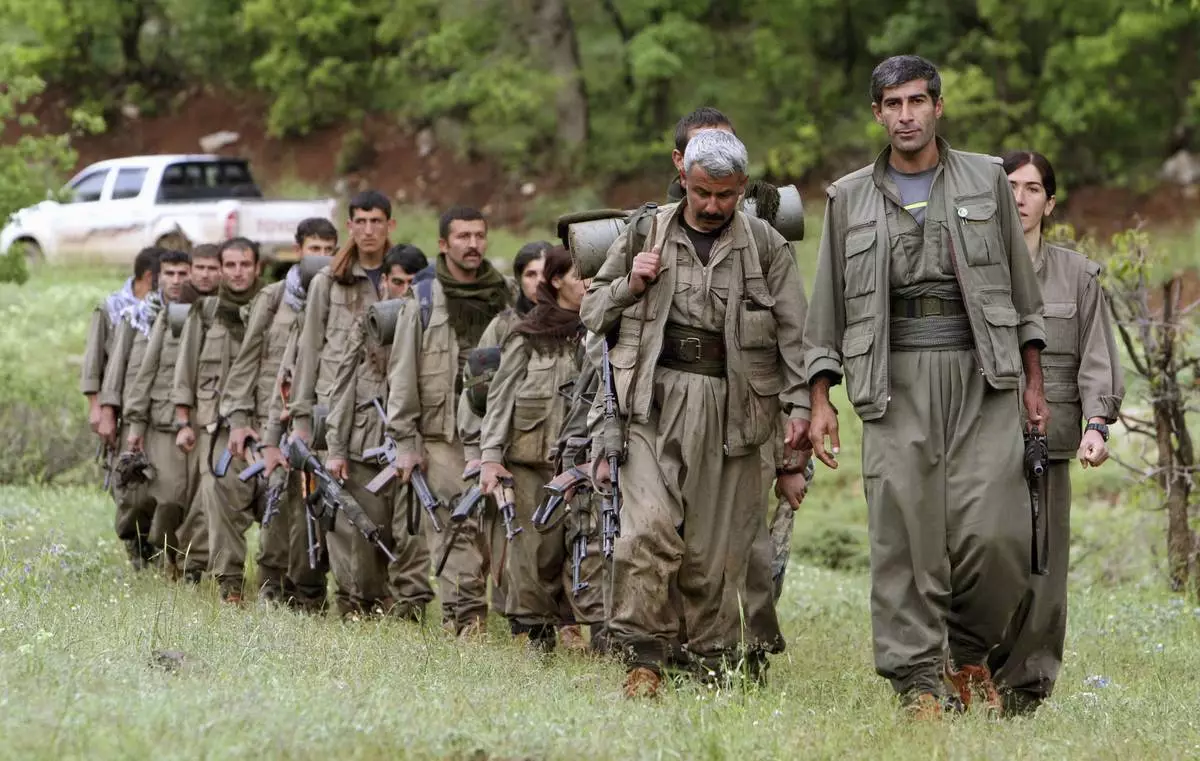
FILE - A group of armed Kurdish fighters from the Kurdistan Workers Party (PKK) enter northern Iraq in the Heror area, northeast of Dahuk, 260 miles (430 kilometers) northwest of Baghdad, Iraq, May 14, 2013. (AP Photo/Ceerwan Aziz, File)
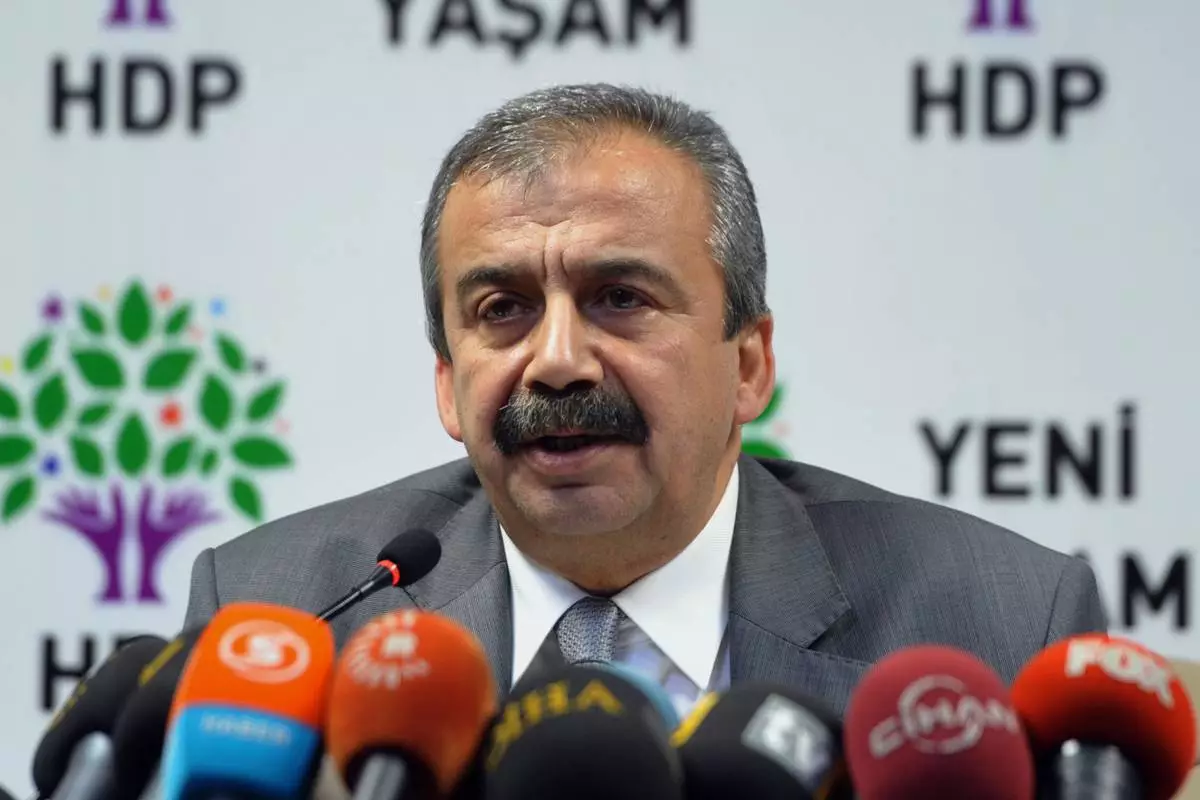
FILE - Lawmaker of the pro-Kurdish Peoples' Democracy Party Sirri Sureyya Onder speaks to the media after talks with Prime Minister Ahmet Davutoglu in Ankara, Turkey, Wednesday, July 15, 2015. (AP Photo/File)
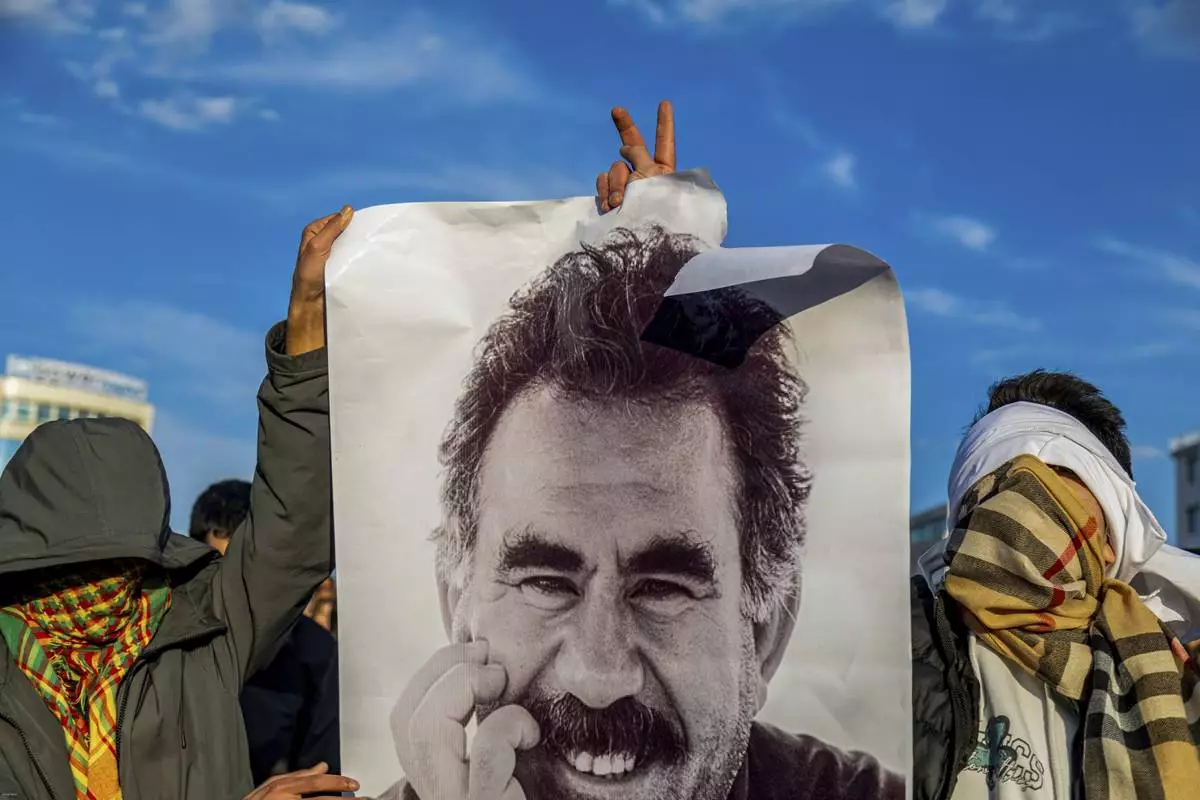
FILE - Youngsters hold a photograph of the jailed leader of the rebel Kurdistan Workers' Party, or PKK, Abdullah Ocalan as they gather to watch live on a tv screen a Pro-Kurdish Peoples' Equality and Democracy Party, or DEM, delegation members releasing an statement from Ocalan, in Diyarbakir, Turkey, Thursday, Feb. 27, 2025. (AP Photo/Metin Yoksu, File)
A group of Buddhist monks and their rescue dog are striding single file down country roads and highways across the South, captivating Americans nationwide and inspiring droves of locals to greet them along their route.
In their flowing saffron and ocher robes, the men are walking for peace. It's a meditative tradition more common in South Asian countries, and it's resonating now in the U.S., seemingly as a welcome respite from the conflict, trauma and politics dividing the nation.
Their journey began Oct. 26, 2025, at a Vietnamese Buddhist temple in Texas, and is scheduled to end in mid-February in Washington, D.C., where they will ask Congress to recognize Buddha’s day of birth and enlightenment as a federal holiday. Beyond promoting peace, their highest priority is connecting with people along the way.
“My hope is, when this walk ends, the people we met will continue practicing mindfulness and find peace,” said the Venerable Bhikkhu Pannakara, the group’s soft-spoken leader who is making the trek barefoot. He teaches about mindfulness, forgiveness and healing at every stop.
Preferring to sleep each night in tents pitched outdoors, the monks have been surprised to see their message transcend ideologies, drawing huge crowds into churchyards, city halls and town squares across six states. Documenting their journey on social media, they — and their dog, Aloka — have racked up millions of followers online. On Saturday, thousands thronged in Columbia, South Carolina, where the monks chanted on the steps of the State House and received a proclamation from the city's mayor, Daniel Rickenmann.
At their stop Thursday in Saluda, South Carolina, Audrie Pearce joined the crowd lining Main Street. She had driven four hours from her village of Little River, and teared up as Pannakara handed her a flower.
“There’s something traumatic and heart-wrenching happening in our country every day,” said Pearce, who describes herself as spiritual, but not religious. “I looked into their eyes and I saw peace. They’re putting their bodies through such physical torture and yet they radiate peace.”
Hailing from Theravada Buddhist monasteries across the globe, the 19 monks began their 2,300 mile (3,700 kilometer) trek at the Huong Dao Vipassana Bhavana Center in Fort Worth.
Their journey has not been without peril. On Nov. 19, as the monks were walking along U.S. Highway 90 near Dayton, Texas, their escort vehicle was hit by a distracted truck driver, injuring two monks. One of them lost his leg, reducing the group to 18.
This is Pannakara's first trek in the U.S., but he's walked across several South Asian countries, including a 112-day journey across India in 2022 where he first encountered Aloka, an Indian Pariah dog whose name means divine light in Sanskrit.
Then a stray, the dog followed him and other monks from Kolkata in eastern India all the way to the Nepal border. At one point, he fell critically ill and Pannakara scooped him up in his arms and cared for him until he recovered. Now, Aloka inspires him to keep going when he feels like giving up.
“I named him light because I want him to find the light of wisdom,” Pannakara said.
The monk's feet are now heavily bandaged because he's stepped on rocks, nails and glass along the way. His practice of mindfulness keeps him joyful despite the pain from these injuries, he said.
Still, traversing the southeast United States has presented unique challenges, and pounding pavement day after day has been brutal.
“In India, we can do shortcuts through paddy fields and farms, but we can’t do that here because there are a lot of private properties,” Pannakara said. “But what’s made it beautiful is how people have welcomed and hosted us in spite of not knowing who we are and what we believe.”
In Opelika, Alabama, the Rev. Patrick Hitchman-Craig hosted the monks on Christmas night at his United Methodist congregation.
He expected to see a small crowd, but about 1,000 people showed up, creating the feel of a block party. The monks seemed like the Magi, he said, appearing on Christ’s birthday.
“Anyone who is working for peace in the world in a way that is public and sacrificial is standing close to the heart of Jesus, whether or not they share our tradition,” said Hitchman-Craig. “I was blown away by the number of people and the diversity of who showed up.”
After their night on the church lawn, the monks arrived the next afternoon at the Collins Farm in Cusseta, Alabama. Judy Collins Allen, whose father and brother run the farm, said about 200 people came to meet the monks — the biggest gathering she’s ever witnessed there.
“There was a calm, warmth and sense of community among people who had not met each other before and that was so special,” she said.
Long Si Dong, a spokesperson for the Fort Worth temple, said the monks, when they arrive in Washington, plan to seek recognition of Vesak, the day which marks the birth and enlightenment of the Buddha, as a national holiday.
“Doing so would acknowledge Vesak as a day of reflection, compassion and unity for all people regardless of faith,” he said.
But Pannakara emphasized that their main goal is to help people achieve peace in their lives. The trek is also a separate endeavor from a $200 million campaign to build towering monuments on the temple’s 14-acre property to house the Buddha’s teachings engraved in stone, according to Dong.
The monks practice and teach Vipassana meditation, an ancient Indian technique taught by the Buddha himself as core for attaining enlightenment. It focuses on the mind-body connection — observing breath and physical sensations to understand reality, impermanence and suffering. Some of the monks, including Pannakara, walk barefoot to feel the ground directly and be present in the moment.
Pannakara has told the gathered crowds that they don't aim to convert people to Buddhism.
Brooke Schedneck, professor of religion at Rhodes College in Memphis, Tennessee, said the tradition of a peace walk in Theravada Buddhism began in the 1990s when the Venerable Maha Ghosananda, a Cambodian monk, led marches across war-torn areas riddled with landmines to foster national healing after civil war and genocide in his country.
“These walks really inspire people and inspire faith,” Schedneck said. “The core intention is to have others watch and be inspired, not so much through words, but through how they are willing to make this sacrifice by walking and being visible.”
On Thursday, Becki Gable drove nearly 400 miles (about 640 kilometers) from Cullman, Alabama, to catch up with them in Saluda. Raised Methodist, Gable said she wanted some release from the pain of losing her daughter and parents.
“I just felt in my heart that this would help me have peace,” she said. “Maybe I could move a little bit forward in my life.”
Gable says she has already taken one of Pannakara’s teachings to heart. She’s promised herself that each morning, as soon as she awakes, she’d take a piece of paper and write five words on it, just as the monk prescribed.
“Today is my peaceful day.”
Freelance photojournalist Allison Joyce contributed to this report.
Associated Press religion coverage receives support through the AP’s collaboration with The Conversation US, with funding from Lilly Endowment Inc. The AP is solely responsible for this content.
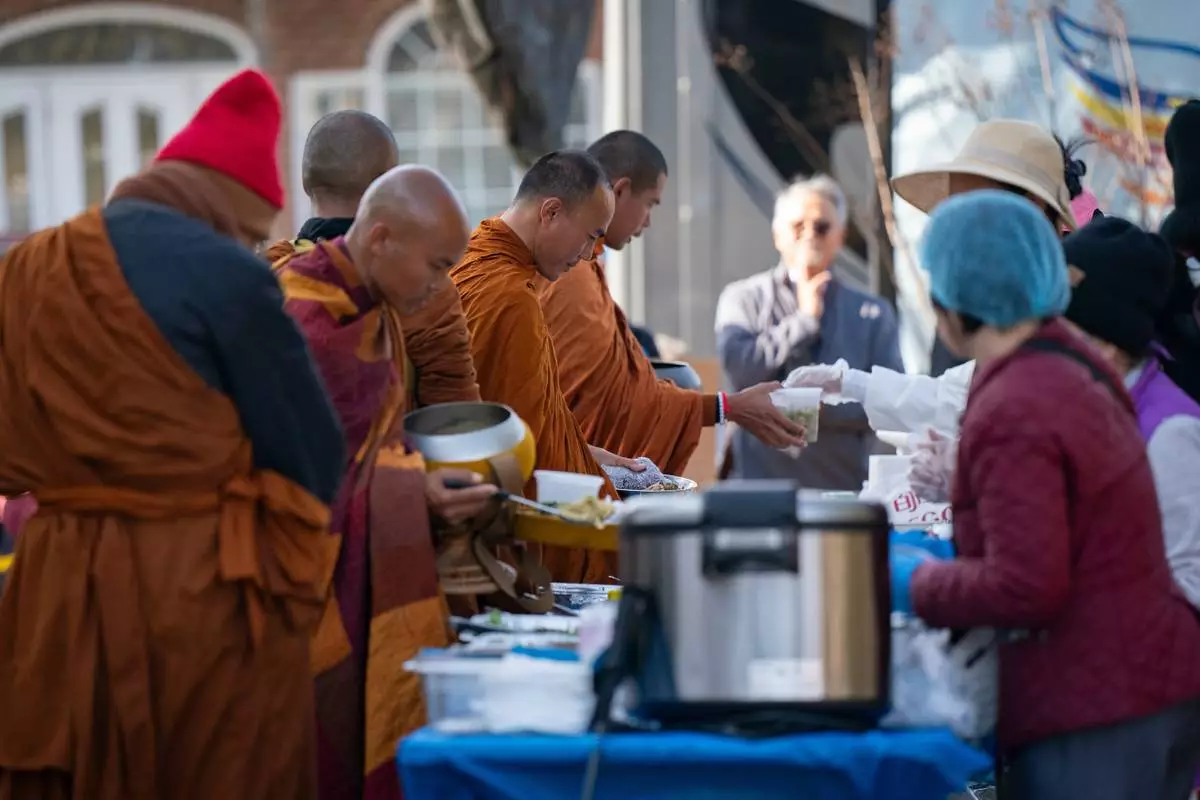
Buddhist monks who are participating in the, "Walk For Peace," get lunch Thursday, Jan. 8, 2026, in Saluda, S.C. (AP Photo/Allison Joyce)

Aloka rests with Buddhist monks who are participating in the, "Walk For Peace," Thursday, Jan. 8, 2026, in Saluda, S.C. (AP Photo/Allison Joyce)

A sign is seen greeting the Buddhist monks who are participating in the, "Walk For Peace," Thursday, Jan. 8, 2026, in Saluda, S.C. (AP Photo/Allison Joyce)
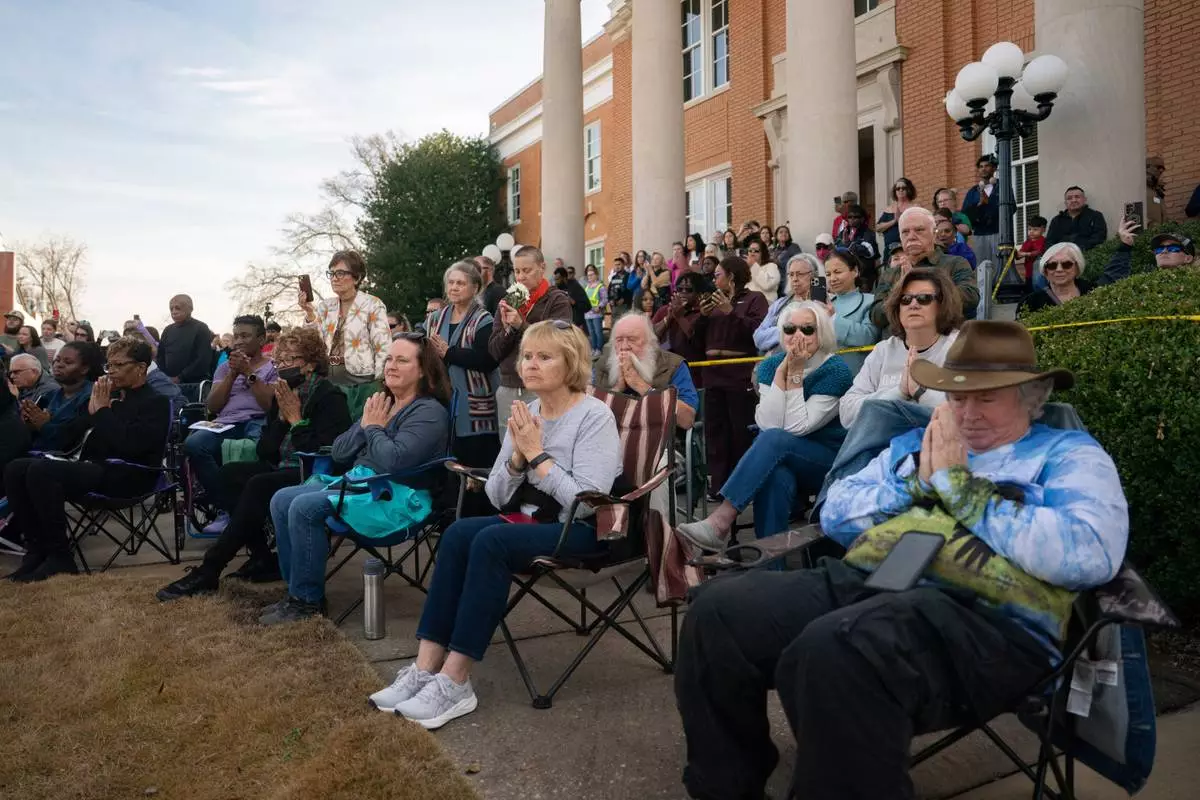
Supporters pray with Buddhist monks who are participating in the, "Walk For Peace," Thursday, Jan. 8, 2026, in Saluda, S.C. (AP Photo/Allison Joyce)
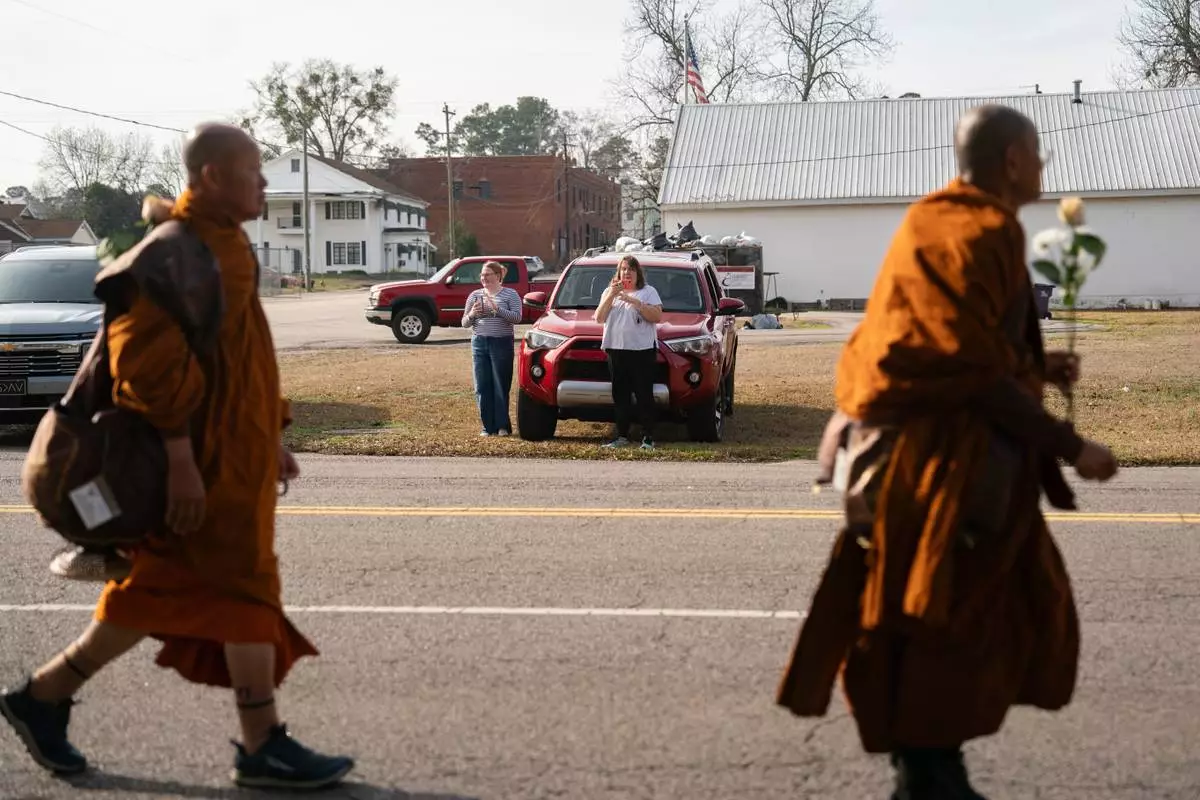
Supporters watch Buddhist monks who are participating in the, "Walk For Peace," Thursday, Jan. 8, 2026, in Saluda, S.C. (AP Photo/Allison Joyce)
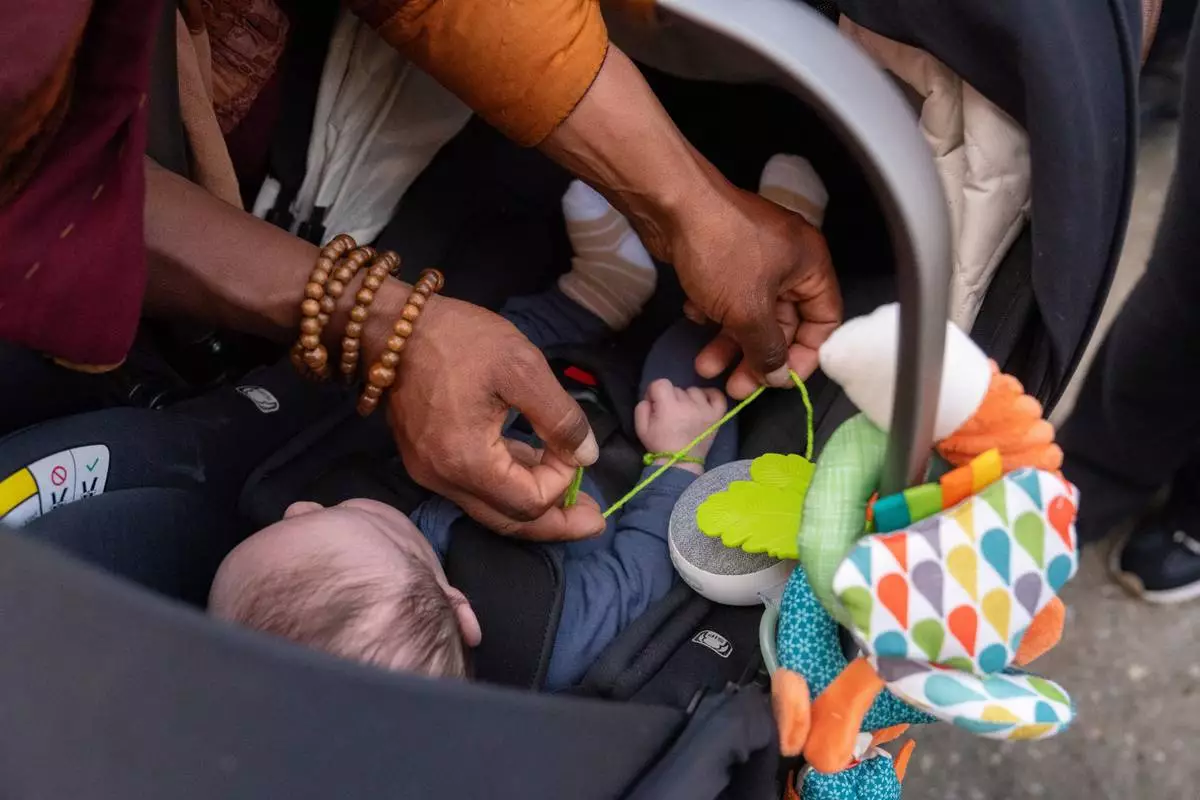
A Buddhist monk ties a prayer bracelet around the wrist of Josey Lee, 2-months-old, during the, "Walk For Peace," Thursday, Jan. 8, 2026, in Saluda, S.C. (AP Photo/Allison Joyce)
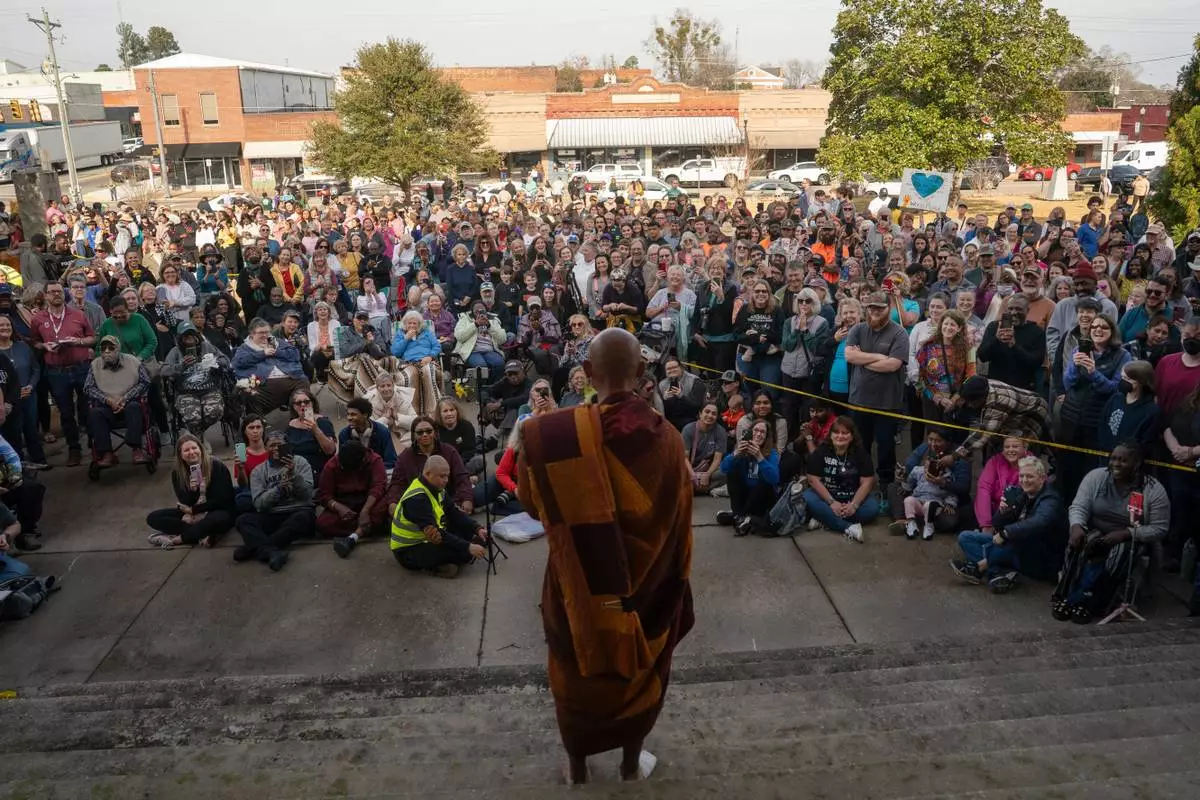
Bhikkhu Pannakara, a spiritual leader, speaks to supporters during the, "Walk For Peace," Thursday, Jan. 8, 2026, in Saluda, S.C. (AP Photo/Allison Joyce)
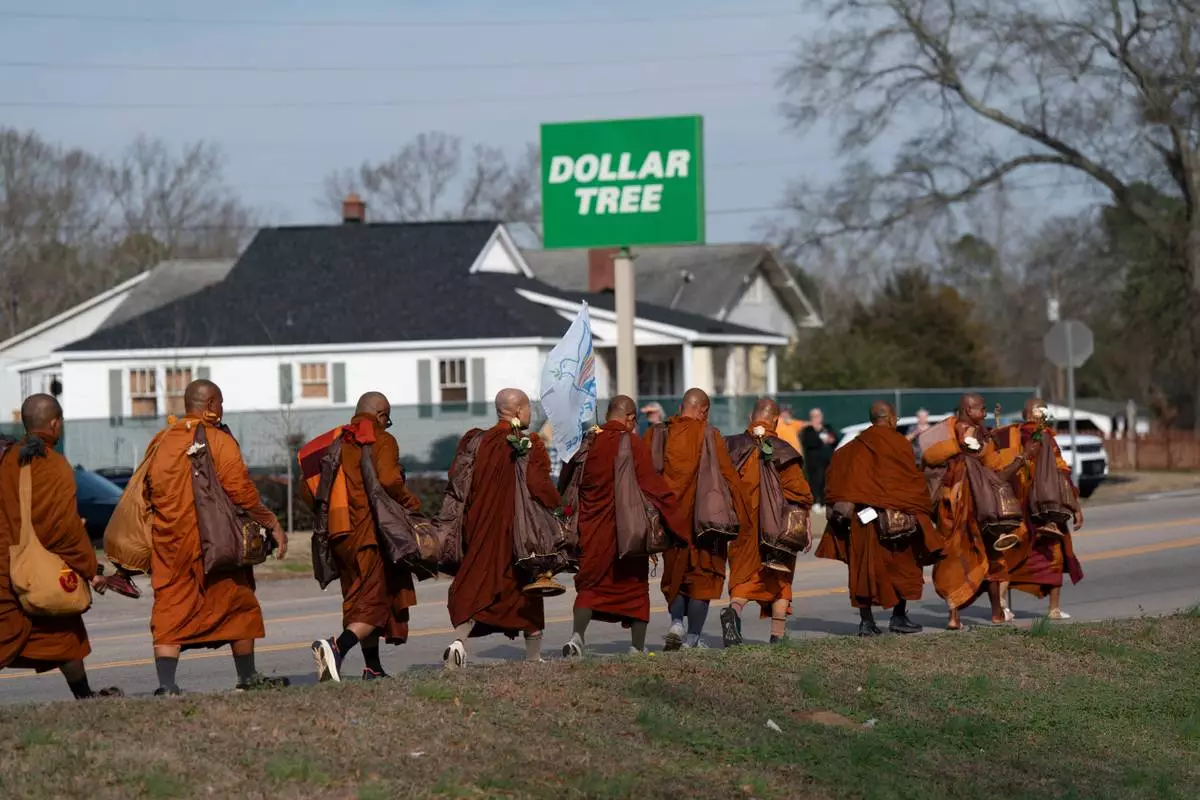
Buddhist monks participate in the, "Walk For Peace," Thursday, Jan. 8, 2026, in Saluda, S.C. (AP Photo/Allison Joyce)
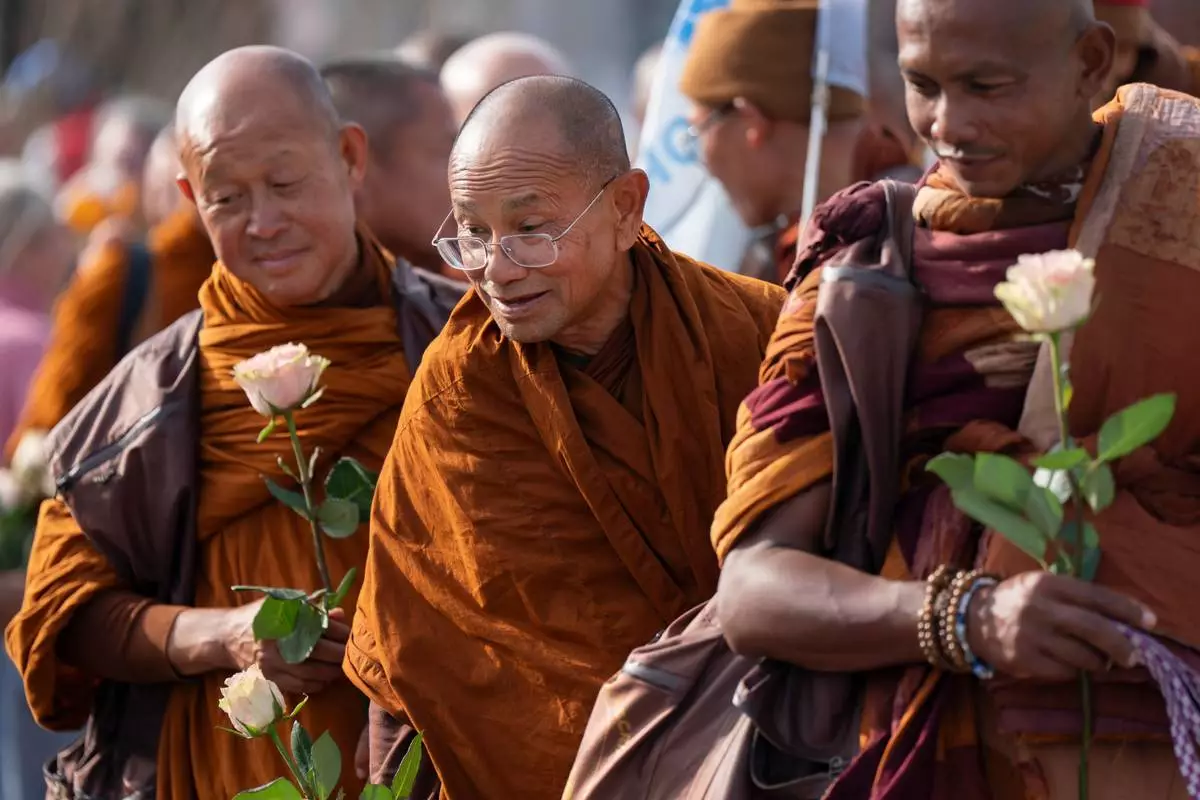
Buddhist monks participate in the, "Walk For Peace," Thursday, Jan. 8, 2026, in Saluda, S.C. (AP Photo/Allison Joyce)
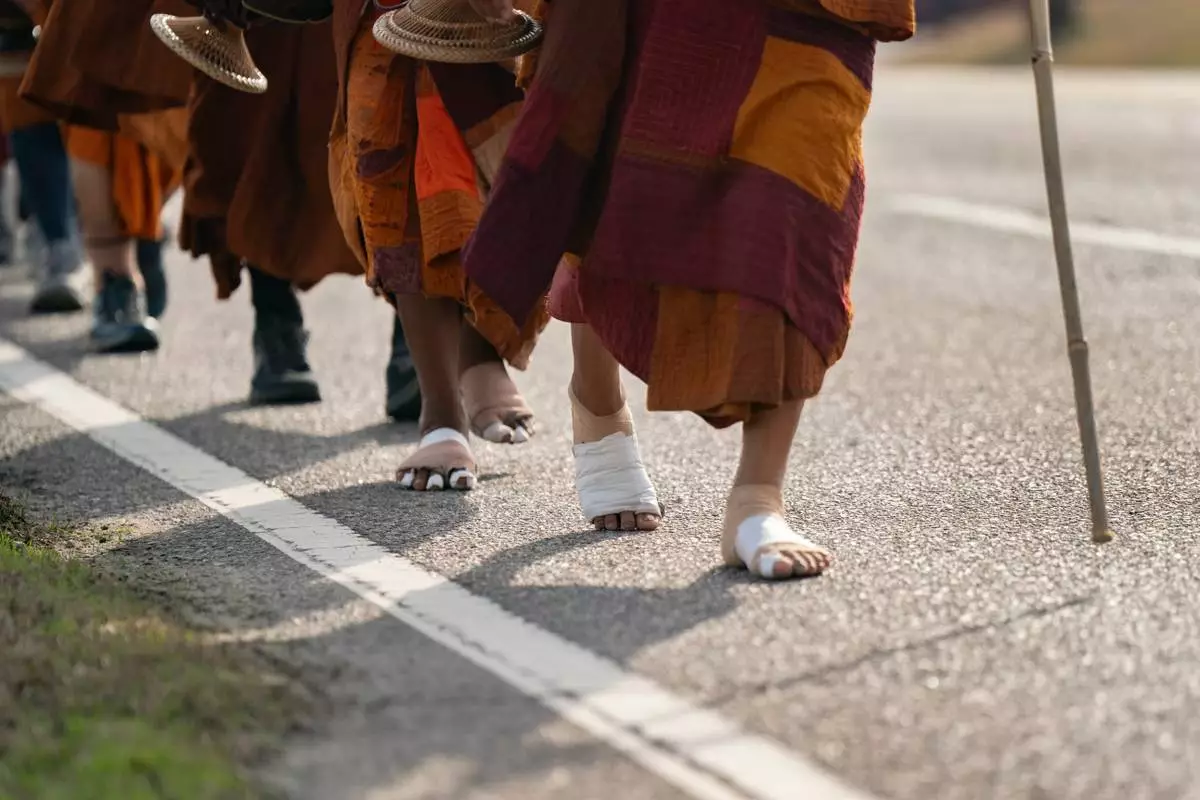
Bhikkhu Pannakara leads other buddhist monks in the, "Walk For Peace," Thursday, Jan. 8, 2026, in Saluda, S.C. (AP Photo/Allison Joyce)
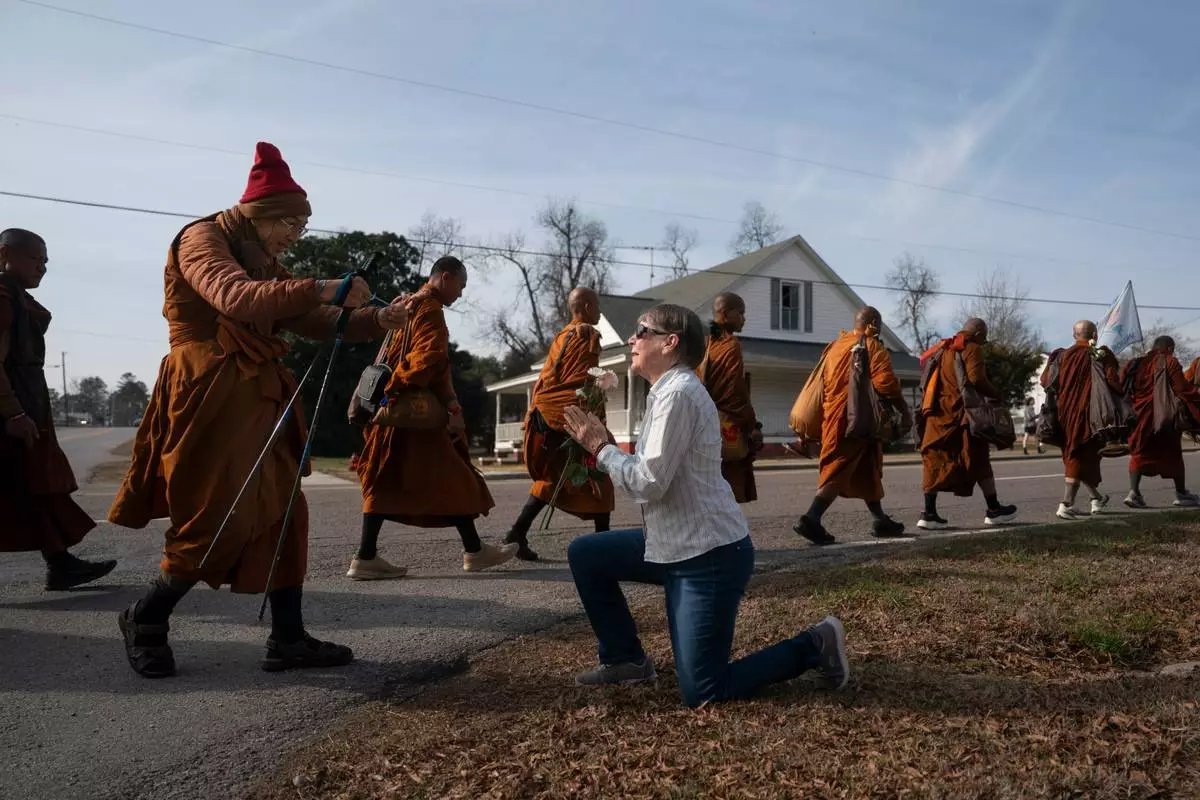
Audrie Pearce greets Buddhist monks who are participating in the, "Walk For Peace," Thursday, Jan. 8, 2026, in Saluda, S.C. (AP Photo/Allison Joyce)
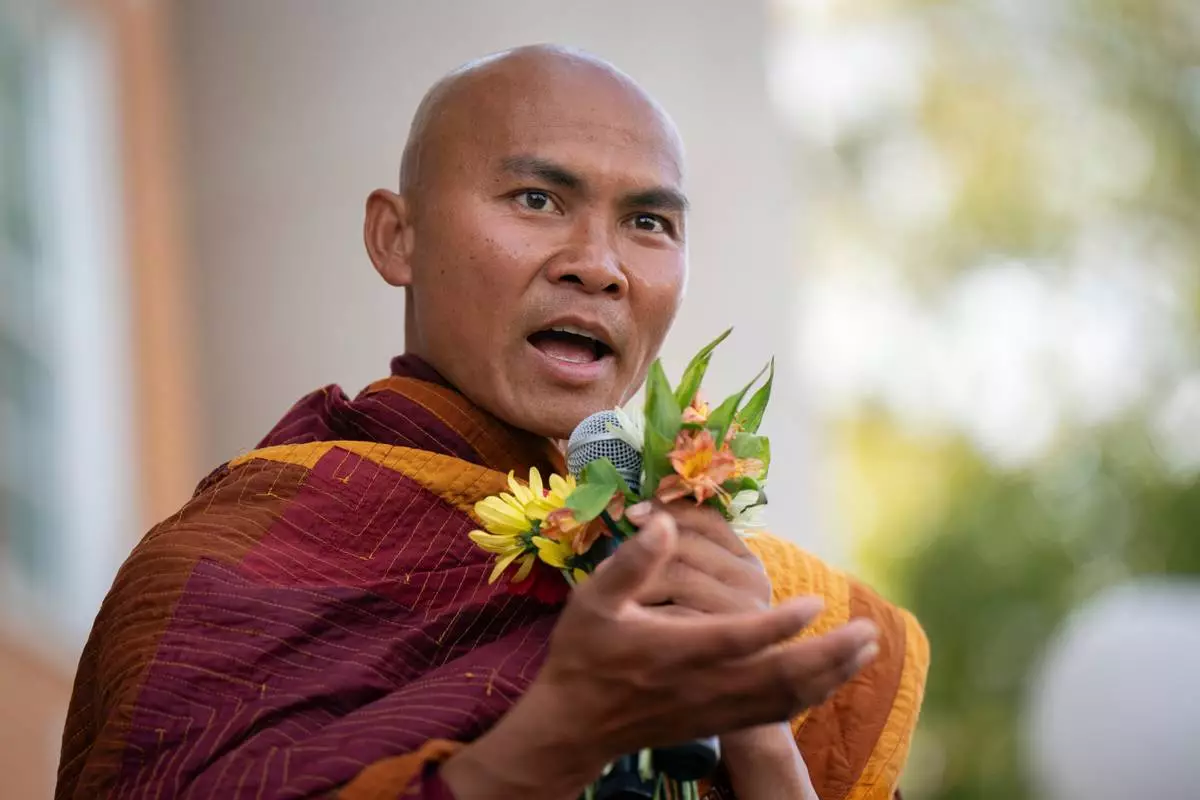
Bhikkhu Pannakara, a spiritual leader, speaks to supporters during the, "Walk For Peace," Thursday, Jan. 8, 2026, in Saluda, S.C. (AP Photo/Allison Joyce)
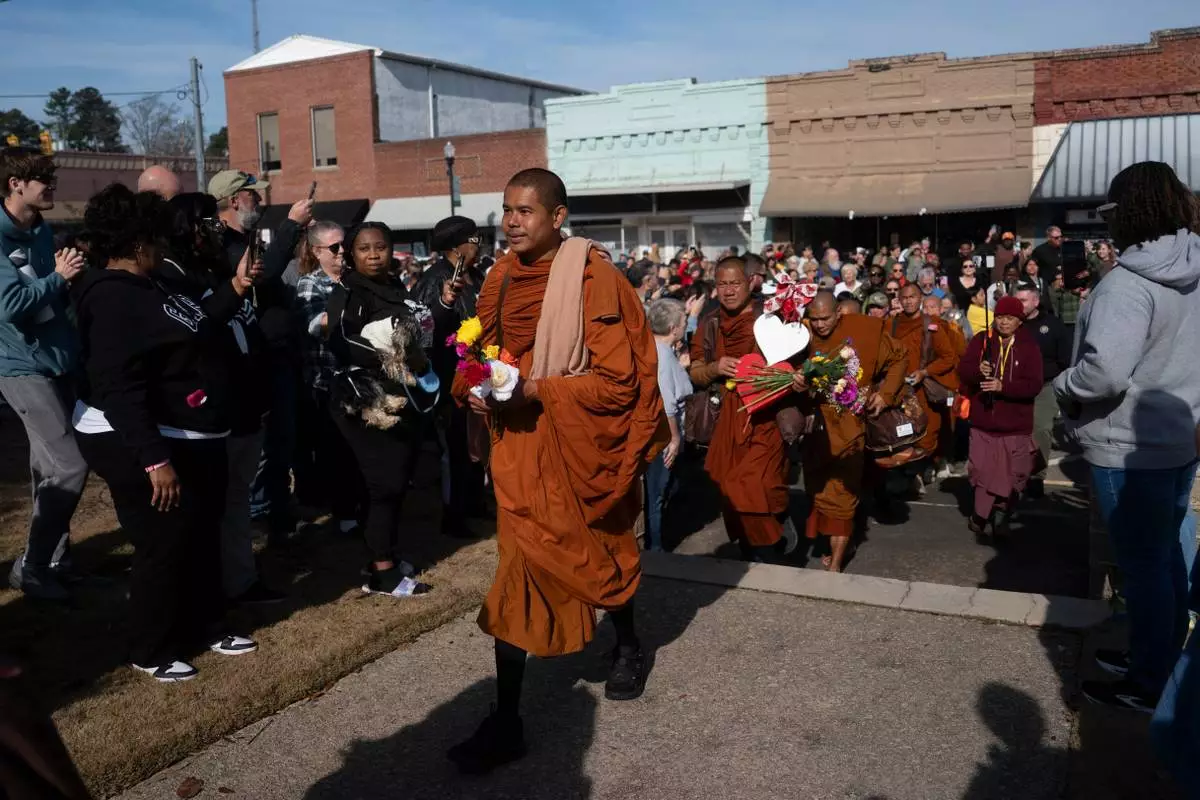
Buddhist monks who are participating in the, "Walk For Peace," arrive in Saluda, Thursday, Jan. 8, 2026, in Saluda, S.C. (AP Photo/Allison Joyce)
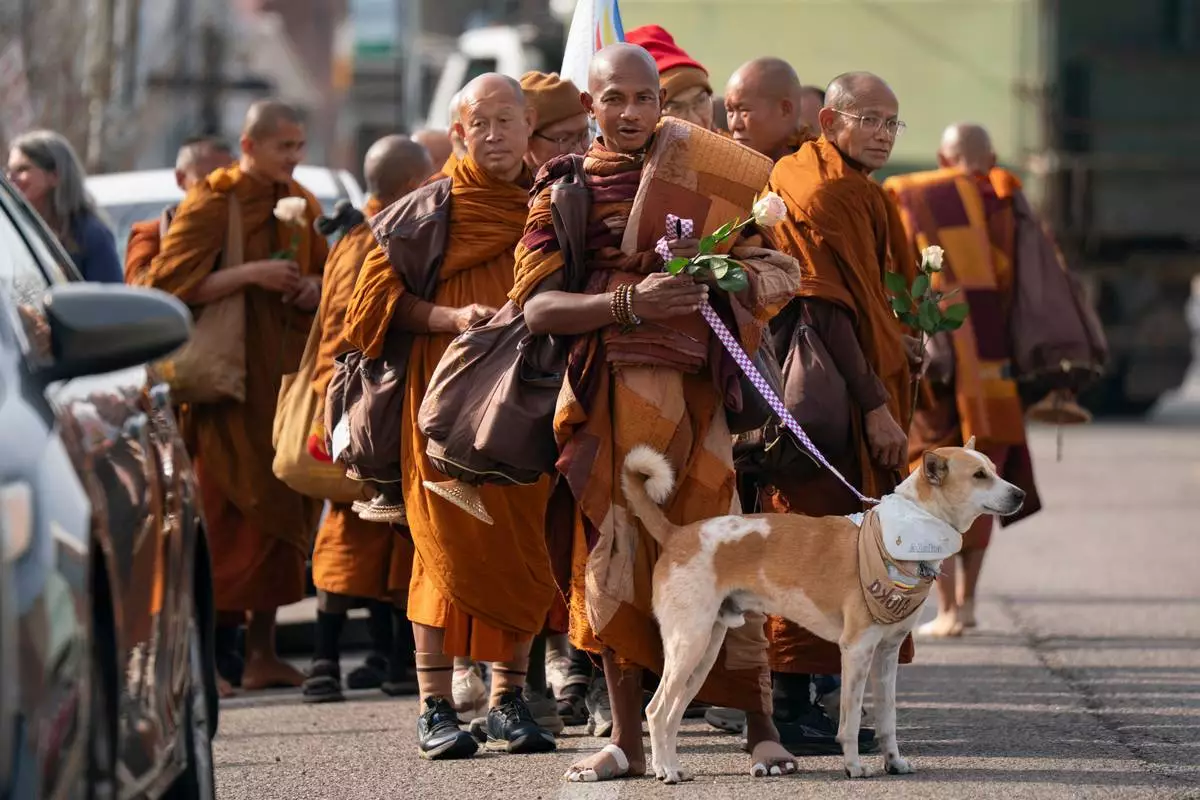
Buddhist monks who are participating in the, "Walk For Peace," are seen with their dog, Aloka, Thursday, Jan. 8, 2026, in Saluda, S.C. (AP Photo/Allison Joyce)





